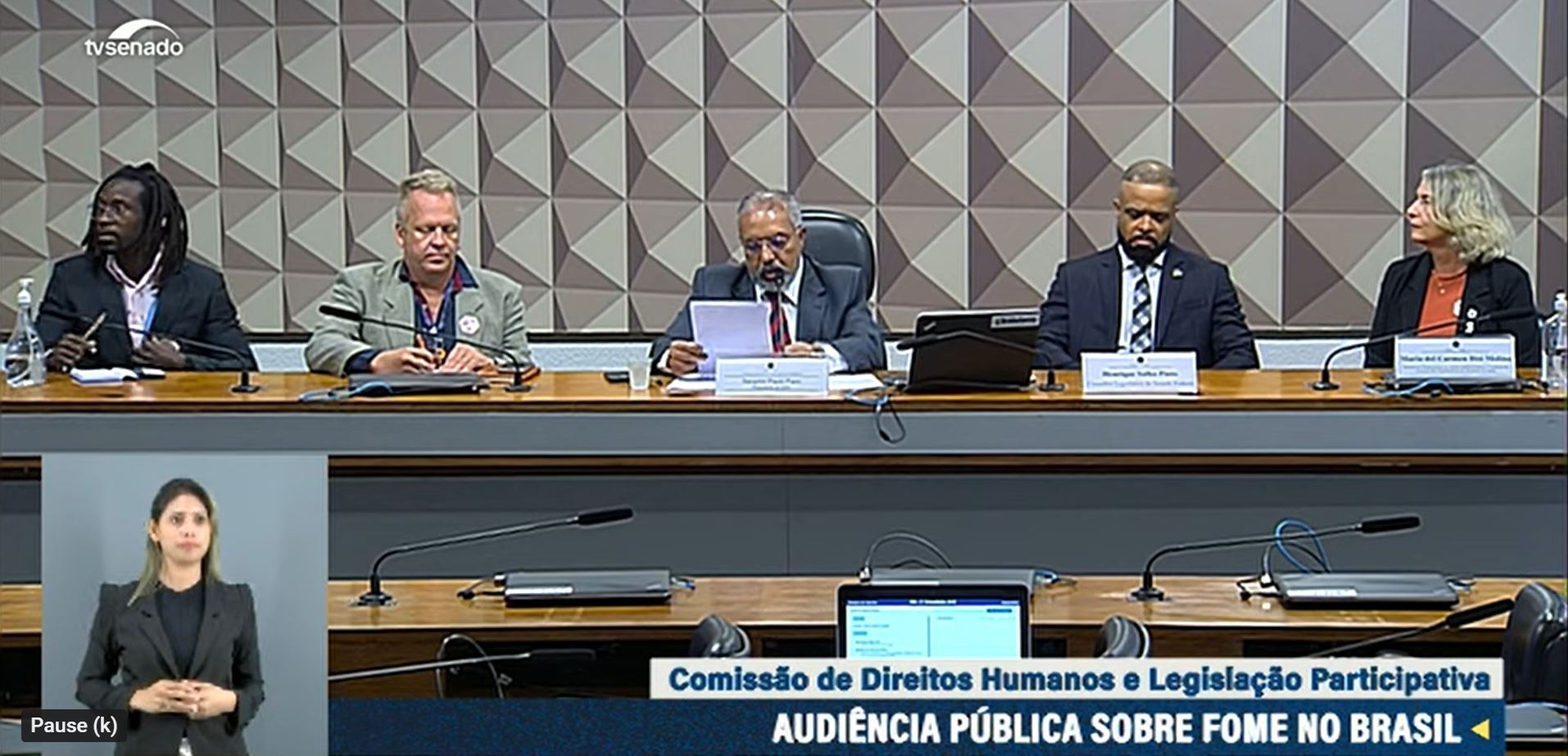
On Monday, March 27, the World Food Programme (WFP) Centre of Excellence against Hunger in Brazil took part in a discussion promoted by the Senate Commission on Human Rights focused on hunger in Brazil. The hearing was the first of a series of debates requested by Senator Paulo Paim (PT/RS), chairman of the commission.
The series of hearings is the result of a proposal by the Senate Data Research Institute, coordinated by the Senate Secretariat of Transparency, whose mission is to provide primary and secondary data to parliamentarians and thematic committees to assist in the evaluation of public policies implemented in Brazil.
According to WFP data, currently 768 million people in the world are affected by malnutrition, with more than half of those in Asia (425 million) and a third in Africa (278 million). Referring to Brazil, Osiyallê Rodrigues, a nutritionist from the Centre of Excellence project team, presented an overview of the incidence of food insecurity and malnutrition, especially considering race and other social determinants, such as the level of education.
Among of the solutions to end hunger pointed out by the participants were the investment in public policies that strengthen the fight against inequality and strengthen family farming, such as the Food Acquisition Program. In addition, participants highlighted the importance of investing in food labelling, indicating to the population which foods are rich in fats, sugars and salt.
Also participating in the public hearing were Senate consultant Henrique Salles Pinto, Maria del Carmen Bisi Molina, Director of the Department of Epidemiological Analysis and Surveillance of Noncommunicable Diseases of the Ministry of Health, and Eduardo Augusto Fernando Nilson, researcher and professor at FIOCRUZ.




